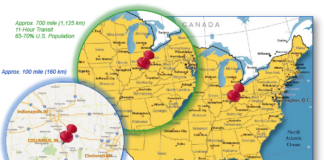One of our all-time favorite TV shows was the Japanese version of Iron Chef. In the opening of each episode, Chairman Kaga would appear in a ceremonial robe and recall memorable past cooking battles before summoning one of the Iron Chefs to engage the enemy in Kitchen Stadium.
Kaga-san always would stroke his chin and open with the words: “If memory serves me….”
Chairman Kaga’s memory never failed him. We wish we could say the same for an exec from Nissan who recently was quoted in The New York Times.
In an otherwise splendid feature in Saturday’s Times about the history and growing success of Nissan’s plant in Smyrna, TN, there were some assertions from a top Nissan exec we’ll diplomatically call “revisionist history.” The article was co-written by the Times’ correspondent in Japan.
The Nissan exec served up the old canard that Nissan [and other Japanese carmakers] “guarded against quality concerns” in the 1980s by refusing to permit U.S. auto parts makers to bid on contracts to supply Japanese transplants in the U.S. “We felt sourcing parts in the U.S. wouldn’t allow us to make cars in our own way,” said Mr. Imazu, the Nissan manufacturing executive.
It also wouldn’t have allowed Japan to hollow out the manufacturing base of the United States while it grabbed the lion’s share of the domestic auto market in the U.S.
When the Japanese auto giants began to build huge assembly plants in the U.S. in the early 1980s, they all promised that 75 percent of the parts for cars built in their transplants would be supplied by U.S. producers. For most of the next 15 years, they did their best to spectacularly break that promise.
Not only were most U.S. auto parts suppliers shut out of bidding on lucrative transplant contracts, but several world-class components producers based here — we’re talking about the companies who invented these components and built them better than anyone in the world — were told they couldn’t supply the transplants unless they first agreed to form a “joint venture” with a Japanese company.
Joint venture, as in you make the parts, we make the profits.
If memory serves us, there was a press conference at SAE’s annual convention during which Rockwell International announced a joint venture with a Japanese company that would permit Rockwell to supply drive trains to the transplants.
(A quick word about quality here: almost every car on the road in 1980 was equipped with a Rockwell drive train. When they weren’t churning out the world’s best drive trains, the Rockwell people were busy building space capsules for NASA.)
When the Rockwell exec finished making the big announcement at SAE, a writer for a trade magazine had a question for him:
“We know what Rockwell is bringing to this joint venture, but what exactly is your Japanese partner contributing?”
Our friend from Rockwell paused as a sad smile crossed his face. “Uh…..technology….I guess,” he said.
No question, the Japanese automakers produced (and continue to produce) great cars and their just-in-time assembly process has revolutionized manufacturing worldwide. They caught the U.S. automakers flatfooted during the 1970s energy crisis and were ready to meet the demand for fuel-efficient vehicles. And yes, Detroit’s Big Three were woefully slow in streamlining their antiquated assembly plants and making obvious quality upgrades like rust-free galvanized steel standard equipment on their vehicles.
But it’s still hard to avoid the conclusion that Japan’s unfair trade practices tilted the playing field and enabled them, in Chairman Kaga’s immortal words, “to reign supreme” in the U.S. automotive sector for the past 20 years.
Fortunately, there’s a happy ending to this story:
As the Times’ feature on Smyrna reveals in detail, it’s no longer cost-competitive for the Japanese auto giants to ship parts from overseas to their U.S. transplants.
Nissan, Toyota, Honda et al finally are making good on their promise to source most of their parts from U.S.-based suppliers for Japanese cars made in the U.S. And Japanese auto parts suppliers are setting up shop in the U.S. in droves as a resurgence in manufacturing fuels the U.S. recovery.
These high-quality auto parts will be made by Americans, whose skills and unmatched productivity were handed down from the Americans who were still producing the best auto parts in the world when the Japanese transplants started making vehicles in the U.S.
Some things never change.















![[VIDEO] Get More for Your Business in Ardmore. Oklahoma](https://businessfacilities.com/wp-content/uploads/2024/02/maxresdefault-324x160.jpg)
